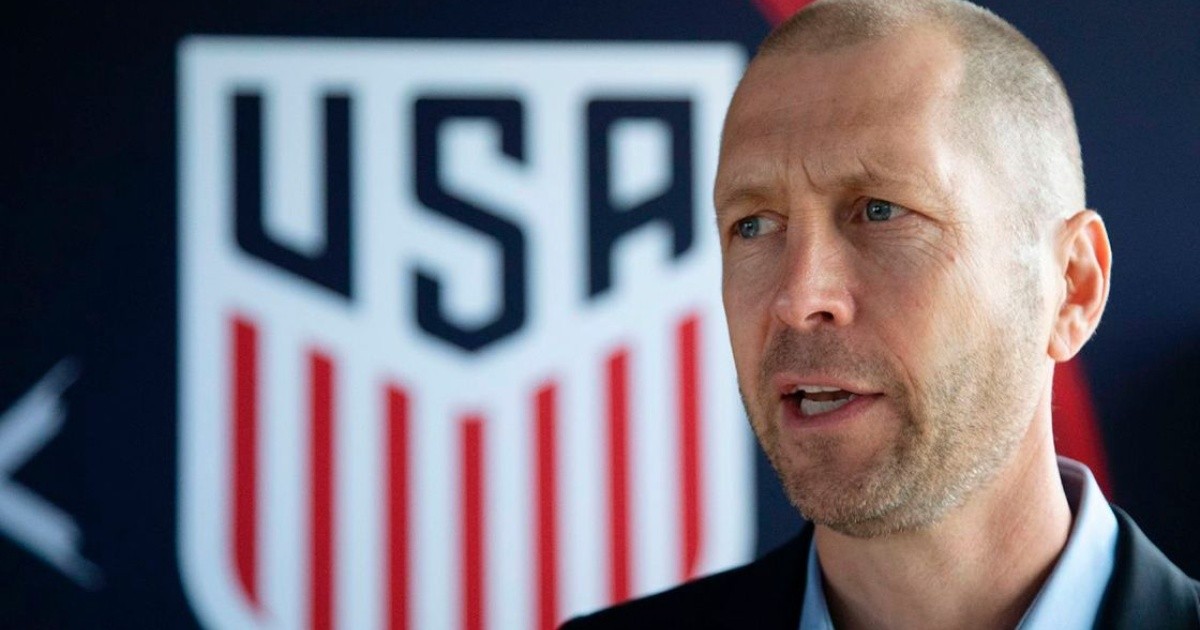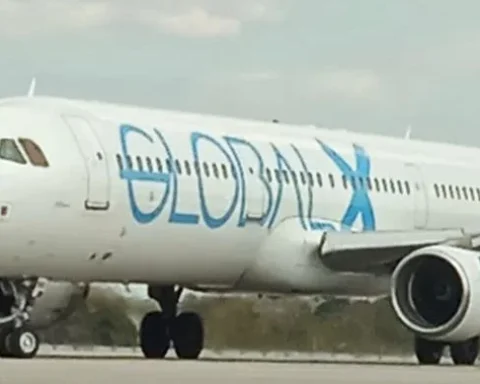In 2011, just 15 years after the first official season of MLS, the most important soccer league in the history of the United States, was played, one of its coaches was already crossing the Atlantic Ocean as an ambassador of American soccer in Europe.
Gregg Berhalter entered history as the first American soccer coach to manage in Europe, being signed by Hammarby IF of the Swedish second division. As a player, Berhalter was also one of the first Americans to break into European football, spending 15 years between the leagues in the Netherlands, England and Germany.
He returned to the United States in 2013 to manage the Columbus Crew and in 2018 he took over for his country’s senior team. His European experience was taken as a good letter of recommendation that today has his team very close to qualifying for the World Cup in Qatar, but it was also a door that has increasingly opened for other American coaches in the leagues of the Old Continent, such as Bob Bradley, David Wagner and most recently Jesse Marsch.
“Before it was said that the American coach was someone who suddenly came from American football and began to be a normal football coach, but that story is already very old because now the American coaches are becoming very sophisticated characters in tactics and in understand football inside and out. That is one of the things that has most characterized this movement of new American coaches, who have brought a level of study and world power within their understanding to the ways, tactics and techniques of soccer and that helps a lot for them to continue evolving ” , explains to El Economista, Cisco Terreros, soccer player representative and co-founder of the FIFA agency, Felkrem.
Jesse Marsch is the most recent case when he was signed as manager of the Premier League by Leeds United, replacing the Argentine Marcelo Bielsa. Marsch didn’t have a very dazzling career as a soccer player (he played for DC United, Chicago Fire and Chivas USA), but at just 37 years old he joined Bob Bradley as an assistant on the coaching staff of his country’s senior team.
After that he had seven years between which he managed Montreal Impact and New York Red Bulls in MLS, which allowed him to make the leap as an assistant for Red Bull Leipzig in the Bundesliga and then take over the starting role at Red Bull Salzburg in Austria; in 2021 he returned to Leipzig as technical director and in 2022 he transferred to the Premier League, where Bob Bradley (to Swansea City) and David Wagner (to Huddersfield) have also managed. Another name is Chris Armas, former coach of New York Red Bulls and Toronto FC, although he is part of Ralf Rangnick’s coaching staff at Manchester United.
“The United States has a world-renowned culture outside of soccer because it is a world power, so that helps coaches assimilate very easily working in Europe. Naturally, we speak the English language and it becomes much easier, but one of the characteristics that European clubs value most towards American coaches is the opportunity to be able to connect locker rooms in a way that other cultures or other coaches may not be able to. The humanity of the players matters and that motivates the players to work very well as a team, so it is a much more personal level than what you see in other European coaches”, adds Cisco Terreros.
Other American coaches who have settled in Europe include Pellegrino Matarazzo with Stuttgart in Germany, Brian Clarhaut with Nykopings and Umea in Sweden, Joe Enochs with Zwickau in Germany’s third division, and Mike Keeney with first-tier HIFK Helsinki. from Finland.
All of them, together with Marsch, Wagner and Bradley, have had a place in the European leagues during the last decade in which, on the contrary, there have only been three Mexican coaches in these latitudes: Javier Aguirre, Ignacio Ambriz and Francisco Palencia, the three in Spain, although only Aguirre with experience in the first division.
“We must give a good recognition to the American soccer federation (US Soccer), because 15 or 17 years ago they started a new campaign to train all their former professional players to obtain their technical license and they have invested a lot of money in that training, we are seeing these results now (…) We now have a very young and modern generation of American technicians who naturally adapt a lot to technology. In the MLS each club has various amounts of technology and statistics, therefore, today’s American coach understands soccer in a much more modern way, soccer can also be a lot of data and they know how to use those tools to boost their teams. ”, highlights the soccer player agent.
Like Berhalter, Bob Bradley returned to MLS and has had high-performing campaigns with Los Angeles FC, including being a Concacaf Champions League finalist in 2020. As such, Berhalter and Bradley stress that European experience can nurture the development that has already been building American soccer by leaps and bounds in the last decade, coinciding with a litter of players in elite clubs, such as Christian Pulisic at Chelsea or Weston McKennie at Juventus.
“The growth of American soccer had to start on television, so that people and children would fall in love with soccer in general. The second wave was the players and now we see the third wave, which is the coaches, and that is going to be the most important thing in American soccer, which will be a world power in the next 15 or 20 years. Continuing to develop the coaches is key so that they can continue to improve the players and these, in turn, can continue to be stars in Europe and all over the world”, reflects Terreros.















